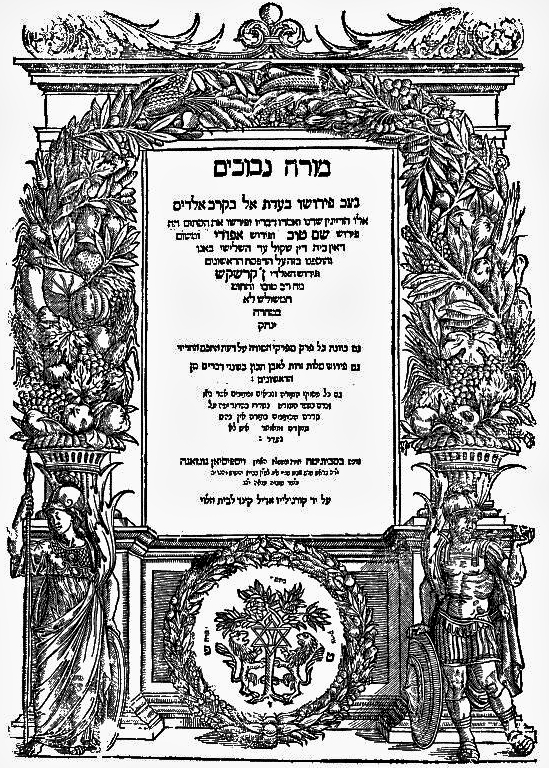
Jewish Philosophy
Jewish philosophy refers to philosophical ideas developed by or relating to Judaism. Until the Jewish Enlightenment (Haskalah) and emancipation, Jewish philosophers primarily focused on reconciling new ideas with the tradition of Rabbinic Judaism.
Ancient Jewish Philosophy
Philo of Alexandria attempted to harmonize Greek and Jewish thought through allegory, viewing Jewish truths as fixed and philosophy as an aid to understanding them.
Jewish Scholarship after the Temple's Destruction
Rabbi Akiva emphasized the importance of free will and the balance between mercy and justice in God's decisions. After the Bar Kokhba revolt, Talmudic scholars re-evaluated Judaism, drawing inspiration from Islamic scholars and philosophers.
Philosophic Synthesis
Contact with other cultures influenced Jewish philosophy, leading to the spread of ideas such as the microcosm-macrocosm analogy from the Brethren of Purity. In the 10th century, Spain became a center of philosophical inquiry, with Jewish philosophers engaging with Muslim and Christian thinkers.
Jewish Philosophy before Maimonides
Hiwi al-Balkhi was the first known Jewish philosopher to subject the Pentateuch to critical analysis, challenging its miraculous accounts. Sa'adya Gaon emphasized the rationality of Judaism, while David ibn Merwan al-Mukkamas introduced Kalam into Jewish philosophy.
Maimonides
Maimonides sought to reconcile Aristotelian philosophy with Torah teachings, arguing against Aristotle's doctrine of the eternity of the world. He viewed the Torah as a guide to speculative reason, emphasizing the importance of knowledge and understanding.
Medieval Jewish Philosophy after Maimonides
Maimonides' writings sparked controversy among Karaites, Dominicans, and Jewish scholars alike. Yosef ben Yehuda of Ceuta studied logic and astronomy under Maimonides. Jacob Anatoli applied Maimonidean Rationalism to Jewish texts, defending Maimonides' philosophy. Hillel ben Samuel addressed the question of the soul's immortality and participated in the controversy over Maimonides' works.
Shemtob Ibn Falaquera
Ibn Falaquera defended Maimonides against anti-Maimonideans and translated Aristotle's "Nicomachean Ethics" into Hebrew. He believed that philosophy and religion could be harmonized, and wrote extensively on ethical and philosophical topics.
Joseph ben Abba Mari ibn Kaspi
Ibn Kaspi was a fierce advocate of Maimonides and studied the works of Islamic philosophers. He emphasized the need for both traditional belief and critical inquiry.
Gersonides
Gersonides was a student of Maimonides' grandson and a proponent of Aristotelian physics and metaphysics. He argued that God's foreknowledge does not negate human free will.
Moses Narboni
Narboni wrote commentaries on Islamic philosophical works, particularly those of Averroes. He believed that Judaism offered the highest level of theoretical and moral truth, and that the Torah had both a simple and a deeper, metaphysical meaning.
Isaac ben Sheshet Perfet
Perfet studied under Nissim ben Reuben Gerondi and was an opponent of Kabbalah. He emphasized the importance of rational argumentation and defended the existence of free will.
Hasdai ben Abraham Crescas
Crescas criticized Aristotle's philosophy and argued that God's existence and other religious beliefs could not be proven through reason alone. He emphasized the importance of faith and revelation.
Simeon ben Zemah Duran
Duran's philosophy emphasized the importance of moral behavior and the significance of the coming of the Messiah. He also argued that only certain fundamental principles of faith were essential to Judaism.
Joseph Albo
Albo narrowed Maimonides' thirteen principles of faith to three, emphasizing the importance of belief in the existence of God, revelation, and divine justice. He rejected the idea that creation ex nihilo is essential to belief in God.
Hoter ben Solomon
Hoter was a 15th-century Yemeni philosopher influenced by Ismaili doctrines. He incorporated elements of Ismaili thought into Jewish philosophy, arguing that cosmology, prophecy, and hermeneutics should be interpreted through an Ismaili lens.
Isaac Abravanel
Abravanel defended Maimonides' thirteen principles of faith against the criticisms of Crescas and Albo. He emphasized the importance of Maimonides' philosophy in safeguarding Jewish belief.
Leone Ebreo
Ebreo was a 16th-century philosopher who drew inspiration from both Jewish and Neoplatonic thought. His "Dialoghi d'amore" explored themes of love, beauty, and the search for perfection.
Renaissance Jewish Philosophy
With the expulsion of Jews from Spain and their migration throughout the Mediterranean, Jewish philosophy flourished in centers such as France, Italy, and Germany. Elia del Medigo was a prominent Renaissance philosopher who emphasized the rationality of Judaism.
Seventeenth-Century Jewish Philosophy
Baruch Spinoza broke with traditional Jewish philosophy by embracing a naturalistic worldview. He argued for a single, infinite substance that encompasses both God and the material world.
Eighteenth and Nineteenth-Century Jewish Philosophy
Moses Mendelssohn founded the Jewish Enlightenment (Haskalah), emphasizing the compatibility of Judaism with reason and contemporary thought. Other philosophers of this period included Solomon Maimon and Samuel Hirsch.
Twentieth and Twenty-First-Century Jewish Philosophy
In the 20th century, existentialism emerged as a significant trend in Jewish philosophy, with Franz Rosenzweig as a notable exponent. Rationalism also re-emerged, with contemporary philosophers such as David Hartman and Lenn Goodman drawing on the ideas of medieval Jewish rationalists. Holocaust theology and Reconstructionist theology are other significant trends in modern Jewish philosophy.